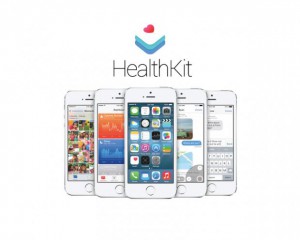Cloud
ATMs Get a Cloud Update
NCR, the leader in ATM technology, introduced new  software that will allow ATMs to use the cloud in order to improve security and lower costs. About 75% of ATMs run Windows XP, which Microsoft suspended support for in April 2014. The new cloud software will allow machines to be updated remotely instead of the manual uploads required with Windows XP. NCR claims that this will allow banks to service machines twice as fast as before.
software that will allow ATMs to use the cloud in order to improve security and lower costs. About 75% of ATMs run Windows XP, which Microsoft suspended support for in April 2014. The new cloud software will allow machines to be updated remotely instead of the manual uploads required with Windows XP. NCR claims that this will allow banks to service machines twice as fast as before.
Do you think that NCR was late to implement this technology since Windows XP was no longer supported?
What other disruptive technologies do you think could be implemented into ATMs?
Cloud computing brings changes for IT security workers
IT security experts are struggling to compete with cloud computing. Because of the low cost and expertise received from vendors like Google and Amazon, security professionals are failing in determining configuration management processes. Configuration management means recording and updating data for software and hardware to know which applications are used on computers. This is difficult because it requires understanding what employees do in an organization, and why certain technologies are used to operate in the business. Since this is a difficult process and not all IT departments are aligned with the business, enterprises are turning to cloud providers who have a better understand for a lower price. Security professionals need to create a business case to gain support on using in-house employees instead of a vendor to combat this threat. The article recommends talking about how much money can be saved from removing software that is not part the configuration plan. If this trend continues, IT and enterprise computing could turn into a commodity and simply outsourced, which means less control and less peace of mind for the business.
How else do you think security professionals can compete against these vendors? Do you think that IT has a threat to be turned into a commodity?
Apple HealthKit
I was doing some research on healthcare management and found this article on Apple’s HealthKit application. This application allows patients to input personal data, such as weight, blood glucose, heart rate and blood pressure. This information is transmitted through the cloud to healthcare providers. This can then be utilized to catch early indicators of disease and allow healthcare providers to treat an issue before it becomes more serious. This will ultimately lead to improved survival rates. Other areas of the medical industry utilizing this type of technology include assisted living, home monitoring, and clinical trials. One of the problems with this type of technology is data security. Because it uses cloud storage to improve its connectivity and data sharing, there is a serious threat to theft and data manipulation.
Personally I find this interesting because of the benefits this could provide. Over time, this data can be used to establish trends which would allow health professionals to determine what activities/actions lead to certain health outcomes. I also think it could allow for better health insurance pricing. For example, if you had two people on diabetes management plans, health insurance providers could see which customers are following their health plan and which ones aren’t. The idea here being that people who are compliant with their health plans will use fewer medical services, leading to a reduction in spending on medical services. Health insurance providers could then adjust payments based on health plan compliance.
Outside of benefits mentioned in the article, what benefits do you see from using Apple’s HealthKit? Is there any technology that could be used in conjunction with this? Do you have any suggestions for solving this data security problem? Do you see any other threats to healthcare data security as a result of cloud storage?
CFOs Jump To ERP Cloud To Accelerate And Integrate

This article discusses how the Oracle Enterprise Resource Planning Cloud and Oracle Enterprise Performance Management Cloud, has proved that software as a service (SaaS) offers significant advantages in terms of implementation, reliability, scalability, and security. Traditionally corporations that implement this system are much more successful and are able to expand and grow quicker. According to Oracle’s Q2 FY2015 earnings statement post implementation: New cloud bookings increased more than 140% in Q2 FY2015, with ERP and EPM revenue growing more than 80%, Oracle added 250 new ERP and EPM Cloud customers in the quarter, and Oracle now has more than 600 ERP and EPM Cloud customers.
Successful companies are realizing that Oracle is necessary and important for the future. Innovative, fast-growing companies, in particular, are tapping Oracle ERP and EPM Cloud to support rapid expansion. Last November, lynda.com, a growing online education company specializing in creative business skills, acquired Oracle ERP Cloud. According to lynda.com CFO Elaine Kitagawa on looking to replace its aging on-premises financial system, Lynda.com conducted a “very thorough vetting process” of ERP cloud vendors and their offerings. She continues with how it offered a “strong, cohesive, and complete set of features” that impressed the financial team, as well as scalability and security the IT team took note of, Kitagawa says. At the same time, the Oracle team “really showed their commitment to lynda.com’s success,” she says. To see how a strong and flourishing company who relies solely on the web to generate revenue and customers, this review from their CFO is very satisfying. It will be interesting to see if and when more companies in other industries make the move.
To read more go to http://www.forbes.com/sites/oracle/2015/01/30/cfos-jump-to-erp-cloud-to-accelerate-and-integrate/



